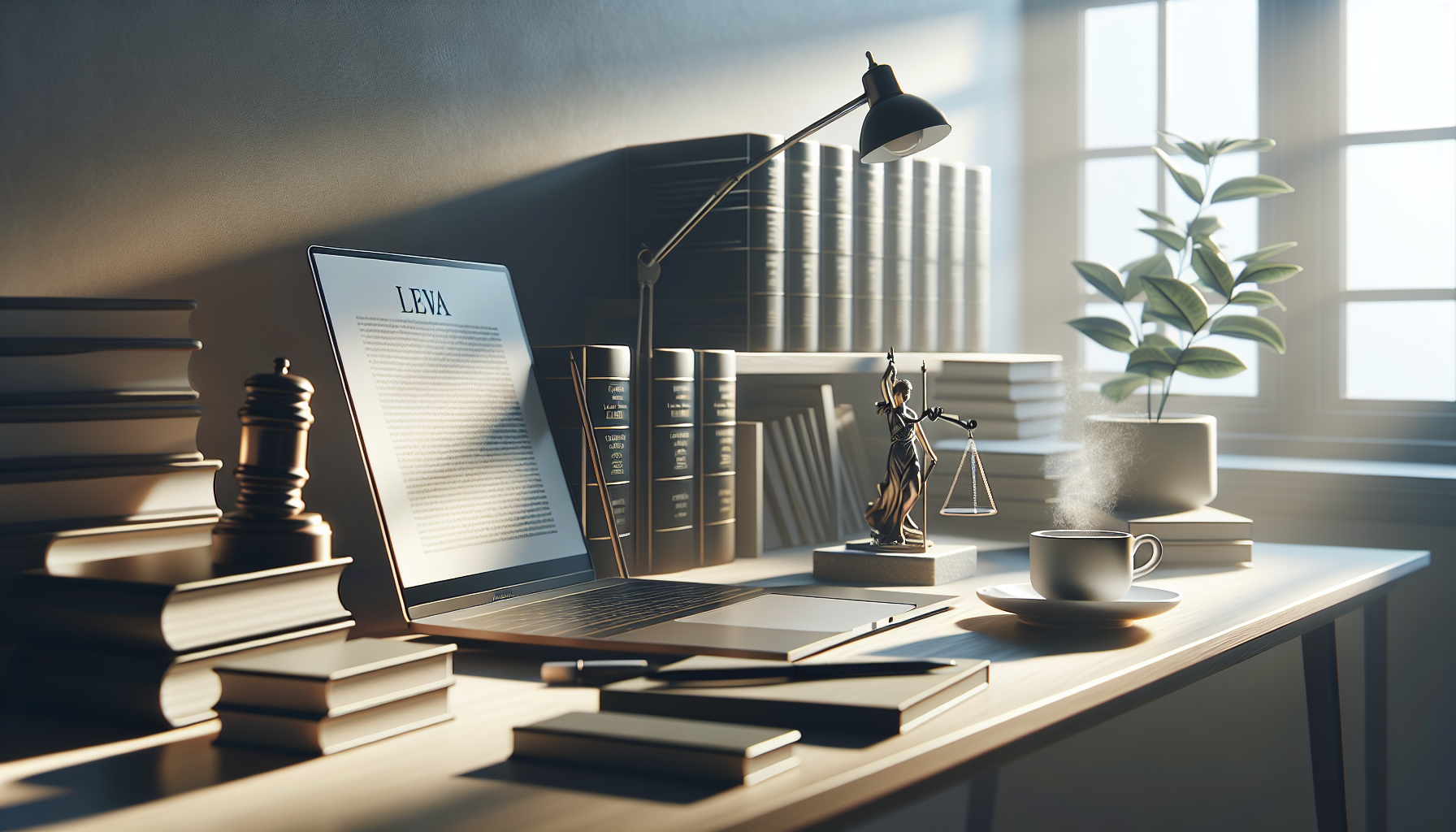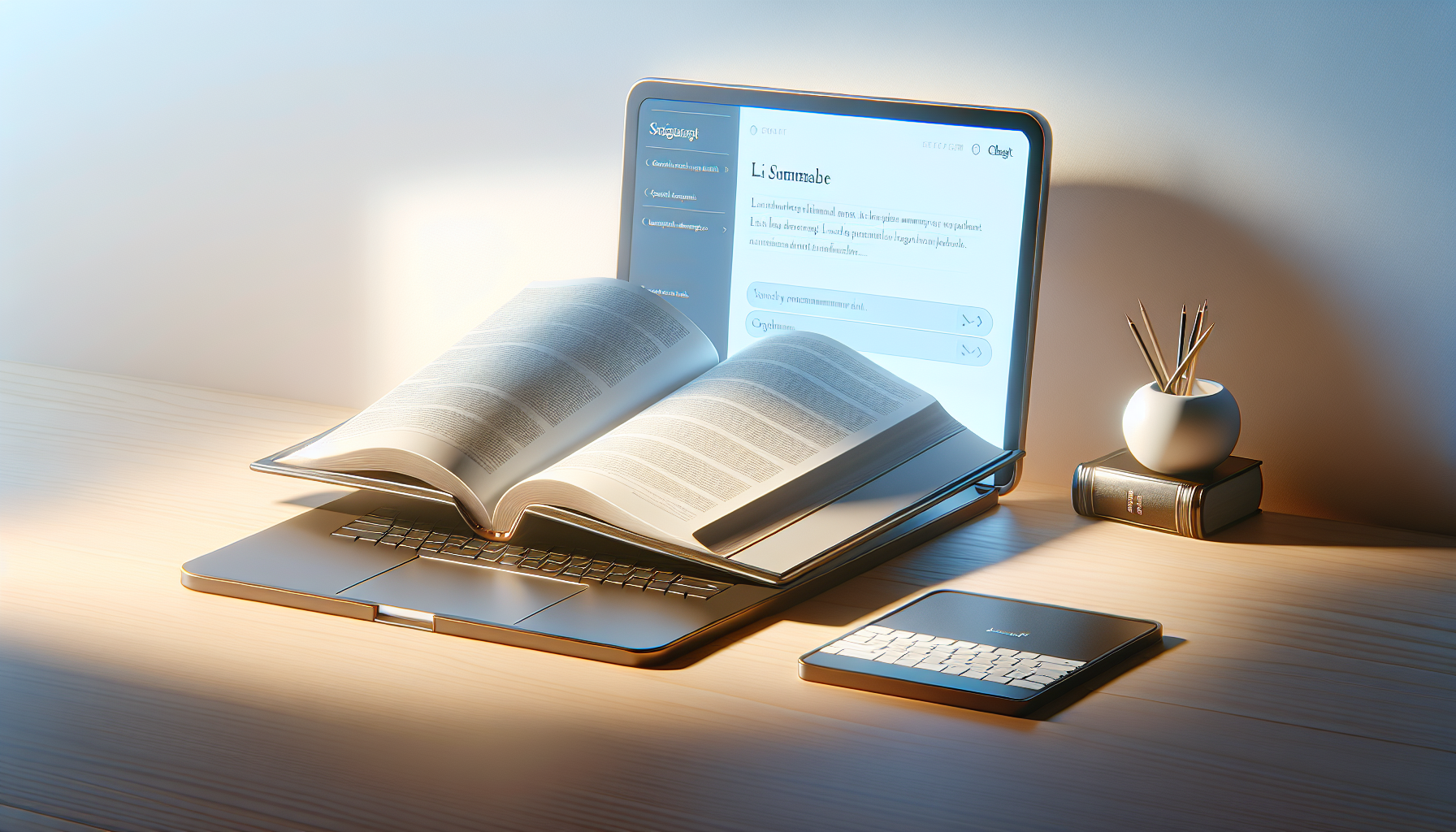Navigating the world of legal services can feel overwhelming, right? Whether you’re drafting a contract or seeking legal advice, the process often comes with its fair share of confusion and complexity. You’re not alone in feeling this way!
But what if I told you that there’s a way to simplify this whole experience? If you stick around, I’ll share some clever ChatGPT prompts that will make your legal writing and research a breeze, turning your daunting tasks into manageable ones.
From drafting documents to enhancing client communication, there’s a treasure trove of tips waiting for you. Let’s dive into the best ways you can leverage ChatGPT for all your legal needs!
Key Takeaways
- ChatGPT can simplify legal writing and research, making complex tasks easier.
- Use specific prompts to generate documents, summaries, and analysis efficiently.
- For legal documents, clearly specify the type and context to get accurate drafts.
- Leverage prompts for client communication to ensure clarity and effective follow-ups.
- Enhance your legal marketing with targeted prompts for blogs and social media content.

Best ChatGPT Prompts for Legal Services
If you’re looking to leverage ChatGPT for legal services, starting with specific prompts can save you time and enhance the quality of your outputs.
Here are some of the best prompts you can use:
- “Generate a comprehensive overview of [specific legal topic or issue].”
- “Create a list of legal resources for clients dealing with [specific issue, e.g., divorce, contract disputes].”
- “Draft a Q&A format document addressing frequently asked questions about [specific legal service].”
- “Summarize the essential steps in the legal process for [specific case type].”
Using these prompts can help you create tailored content to assist both clients and peers in the legal profession.
How to Use ChatGPT for Writing Legal Documents
Writing legal documents can be time-consuming, but ChatGPT can simplify this process significantly.
Follow these actionable steps to get the most from ChatGPT:
- Specify the type of document you need, such as a contract, brief, or letter.
- Provide context or background information relevant to the document.
- Instruct ChatGPT with a clear prompt; for instance, “Draft a lease agreement for a commercial property including terms such as rent, duration, and maintenance responsibilities.”
- Review the output carefully, making adjustments as necessary to ensure it meets legal standards.
Try experimenting with a few examples like:
- “Create a non-disclosure agreement (NDA) between Company A and Company B.”
- “Draft a power of attorney document that allows for medical decision-making.”
With these steps, you’ll streamline your legal document writing process while ensuring accuracy.
Prompts for Legal Research and Case Analysis
When it comes to legal research, precision is key.
ChatGPT can help simplify case analysis and research with the right prompts.
Consider using the following:
- “Summarize case law on [specific legal issue or precedent].”
- “List key factors to consider in the analysis of [specific case].”
- “Generate a legal memo outlining the implications of [specific law or rule].”
- “Identify recent changes in legislation regarding [relevant law or regulation].”
These prompts can help in quickly gathering information and generating insightful analyses.
Using ChatGPT to Draft Contracts and Agreements
Drafting contracts and agreements can often be a tedious task, but ChatGPT can make it more efficient.
Here’s how to use it effectively:
- Always begin with a well-defined prompt; “Draft a partnership agreement outlining contributions, profit-sharing, and dispute resolution.”
- Be specific about the elements you want included in the agreement.
- After receiving the draft, review it thoroughly and tailor it to suit your needs.
You might also want to try these specific prompts:
- “Create a service agreement for a freelance graphic designer.”
- “Outline a rental contract for a residential property.”
Utilizing ChatGPT for drafting contracts can substantially cut down on your workload while still producing clear and concise agreements.

Creating Legal Summaries with ChatGPT
Legal summaries can be a game-changer for busy professionals, providing quick insights into complex documents.
ChatGPT can assist in summarizing case law, legislation, and any lengthy legal texts efficiently.
To get started, use these prompts:
- “Summarize the key points from [case name or statute].”
- “Create a concise summary of the legal principles in [specific legal field, e.g., tort law].”
- “Outline the main arguments presented in [legal document].”
- “Generate a summary of the implications of [specific law or ruling].”
By utilizing these prompts, you can create brief yet comprehensive summaries that save you hours of reading and dissecting legal material.
Prompt Ideas for Legal Advice and Consultation
ChatGPT can be an incredibly helpful tool for generating legal advice and facilitating client consultations.
To make your sessions more productive, consider these prompts:
- “Provide a preliminary analysis of [specific legal issue].”
- “Draft a list of questions for a client regarding [specific case].”
- “Outline potential outcomes for a case involving [specific circumstances].”
- “Summarize ethical considerations related to [specific legal scenario].”
These prompts can help in structuring your consultation while ensuring that you cover all necessary aspects of the client’s case.
ChatGPT Prompts for Client Communication in Legal Settings
Effective communication with clients is vital in the legal field.
Here are some practical prompts you can use with ChatGPT to enhance your communication:
- “Draft a follow-up email for a client after an initial consultation on [specific issue].”
- “Create a client satisfaction survey regarding the legal services provided.”
- “List key updates to share with clients in [ongoing case or matter].”
- “Outline an explanation of legal terms in layman’s language for clients regarding [specific topic].”
Using these prompts will ensure that your communication is clear, informative and addresses your clients’ needs.
Enhancing Legal Marketing with ChatGPT Prompts
Legal marketing is essential for attracting new clients and retaining existing ones.
ChatGPT can assist in formulating effective marketing content with these prompt ideas:
- “Generate a blog post outline on recent changes in [specific area of law].”
- “Draft a social media post encouraging people to reach out for legal advice on [specific topic].”
- “Create a promotional email for our upcoming webinar on [legal subject].”
- “Compile a list of SEO keywords relevant to [law practice area].”
These marketing prompts can enhance your visibility and engagement online, helping law firms stand out in a competitive marketplace.

Common Legal Scenarios and Corresponding ChatGPT Prompts
Understanding common legal scenarios can help you formulate effective responses using ChatGPT.
Here are some practical prompts for various legal situations:
- “Provide potential defenses for a client accused of [specific crime].”
- “List the steps a tenant should take when facing eviction.”
- “Draft a memorandum outlining the considerations in an intellectual property dispute.”
- “Outline important factors to discuss with clients during a divorce consultation.”
Using these prompts, you can generate well-rounded guidelines by incorporating specific details of any case scenario.
Tips for Crafting Effective Legal Prompts for ChatGPT
Creating effective legal prompts is crucial for getting high-quality outputs from ChatGPT.
Follow these tips to ensure your prompts yield the best results:
- Be as specific as possible; vague prompts lead to vague responses.
- Include context and background information relevant to the legal issue.
- Use clear, concise language to articulate your request.
- Test various phrasings and structures; sometimes a slight tweak can improve results.
- Consider what type of response you need—summary, analysis, or advice—and structure your prompt accordingly.
For example, instead of asking “what is a contract?”, try “explain the essential elements that make a contract enforceable.”
By applying these techniques, you can enhance the quality of your interactions with ChatGPT in your legal practice.
FAQs
ChatGPT can assist in drafting various legal documents, including contracts, agreements, memos, and legal briefs. However, it’s essential for users to review and modify drafts to ensure compliance with specific laws and regulations.
You can leverage ChatGPT to summarize case law, provide insights on legal principles, and generate search queries for databases. Its ability to process information can help streamline your legal research process significantly.
Effective prompts for legal consultation should be clear and specific, such as “What are the legal implications of a breach of contract?” Tailor your questions to focus on the specific areas of law relevant to your situation for the best results.
Yes, ChatGPT can generate ideas for legal marketing content, draft blog posts, and help with social media strategies. Tailoring your prompts to focus on target audiences and platforms can enhance your marketing effectiveness.
